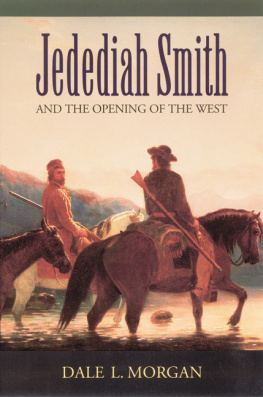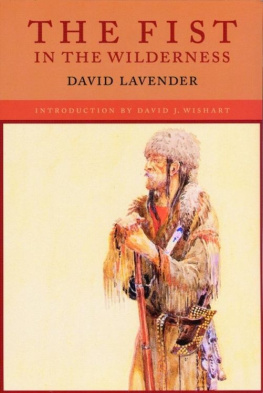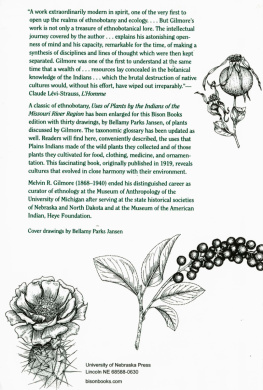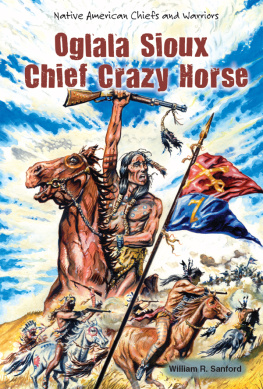JEDEDIAH SMITH

JEDEDIAH STRONG SMITH
JEDEDIAH SMITH
And the Opening of the West
by
DALE L. MORGAN

UNIVERSITY OF NEBRASKA PRESS LINCOLN/LONDON
Copyright 1953 by Dale L. Morgan
Library of Congress catalog card number 53-10550
ISBN 0-8032-5138-6
Manufactured in the United States of America
First Bison Book printing: June, 1964

Bison Book edition reprinted from the 1953 edition by arrangement with the Bobbs-Merrill Company.
E-book ISBN: 978-0-8032-4595-2
To My Mother
EMILY HOLMES MORGAN
PREFACE
In the exploration of the American West, Jedediah Strong Smith is overshadowed only by Meriwether Lewis and William Clark. During his eight years in the West Jedediah Smith made the effective discovery of South Pass; he was the first man to reach California overland from the American frontier, the first to cross the Sierra Nevada, the first to travel the length and width of the Great Basin, the first to reach Oregon by a journey up the California coast. He saw more of the West than any man of his time, and was familiar with it from the Missouri River to the Pacific, from Mexico to Canada. He survived the three worst disasters of the American fur trade, the Arikara defeat of 1823, the Mojave massacre of 1827, and the Umpqua massacre of 1828, in which no less than forty men fell around him, only to die a lonely death on the Santa Fe Trail under the lances of the Comanches.
Jedediah Smith is an authentic American hero, a man who packed a staggering amount of achievement into the time between his twenty-third and thiriy-third years, yet his is a story with a strange aftermath, for Jedediah Smith dead has had to fight for survival in the American memory with the same tenacity he brought to the struggle for physical survival during the years he ranged the West. His countrymen did their best to forget him entirely, but the integrity and magnitude of his accomplishment, the energy and the passion which infused his life and work, have finally brought him out upon the sunlit plateau for all to see.
He went to the Rockies in 1822 as one of the rawest of the green hands recruited by William H. Ashley and Andrew Henry for their fur-trading venture on the upper Missouri and the Yellowstone. That decade is seen now as a golden age in the history of the West, and some enduring reputations were made. The roll call of the Ashley men would include William L. Sublette, Thomas Fitzpatrick, James Bridger, Hugh Glass, Mike Fink, James Kirker, Antoine Leroux, Black Harris, Robert Campbell and James P. Beckwourth, to say nothing of such rivals as Antoine Robidoux, Etienne Provost, Joshua Pilcher, William Henry Van derbuigh Lucien Fontenelle and the brothers Bent. Yet Jedediah Smith rose head and shoulders above them all. Within a year he was at the head of an Ashley party; in two years he was Ashleys partner; in one year more he was senior partner in a firm which dominated the mountain fur trade until he quit the Rockies. He was old Jed, but he was also Mr. Smith, and the distinction is meaningful.
Jedediah Smith was an unlikely sort of hero for the brawling West of his time, that West about which it has been said that God took care to stay on his own side of the Missouri River. For Jedediah was a young man modest and unassuming, quiet and mild of manner, one who never smoked or chewed tobacco, never uttered a profane word, and partook of wine or brandy only sparingly on formal occasions. He took his religion with him into the wilderness and let nothing corrode it. That would have made him merely curious, except that he took with him also indifference to privation and personal suffering, endurance beyond the point where other men died, courage and coolness under fire, intelligence that impressed everyone, leadership of a high order, and energy and drive enough for three men.
In many respects he exemplified the American genius. Jedediah Smith entered the West owning his rifle, his Bible, the clothes on his back and very little else. He returned to the States eight years later having sustained himself and a large business operation through all that time by his proficiency as a trapper and his adeptness as a trader. Exploration was not a primary purpose with him; it was incidental to the pursuit of a business. In consequence, as an explorer he was a distinguished amateur in comparison with those two professionals, Lewis and Clark. He saw more of the West than they did and sustained himself through greater difficulties, but his education was not equal to his opportunities; he fixed the latitude and longitude of no geographical feature in the West, and he brought home no scientific collections. Yet this may be said too: Lewis and Clark were provided with a force of men under military discipline; they were out-fitted relatively well; and nothing was asked of them except that they reach the Pacific by way of the sources of the Missouri and come home rich in information. Superbly they did their job; the Lewis and Clark Expedition will always remain our national epic of exploration. In contrast, everywhere Jedediah Smith traveled, the travel had to pay its way in beaver.
Like Lewis, Jedediah died in tragic circumstances while still a young man, before he had been able to do anything about publishing his journal or his map, and he had no William Clark to be his literary executor. The disasters which attended his odyssey left gaps in his journals no one was competent to fill, least of all the farmers, tradesmen and artisans who were his brothers. Fire pursued even such papers as survivedfire in Missouri, fire in Illinois, fire in Iowa, fire in Texasand it was not until 1934 that a brilliant young scholar found and published the surviving fragments of his journals.
Jedediah Smiths place in history has been established by the labors of modern students who have had the patience and the energy to search out the record, disregarding a folk belief which has persisted since the presidential campaign of 1856, that nothing of importance happened in the West before Frmonts time. This latter-day reputation is in no sense a manufactured thing, for the solid accomplishment has always been there. It is not merely the slow emergence of the facts but improved perspective on the forces that have shaped our national life which has finally revealed Jedediah Smiths true stature.
He entered the West when it was still largely an unknown land; when he left the mountains, the whole country had been printed on the living maps of his trappers minds. Scarcely a stream, a valley, a pass or a mountain range but had been named and become known for good or ill. A new kind of American, the mountain man, had come into existence during those eight years, and Jedediah Smith and his associates had had the shaping of him. They showed that the West would have to be conceived on American terms, that no parallel with the steppes of Asia would hold; they effectively carried the energies of American Me beyond the temporary boundaries that had pent them, and initiated vortexes of force which made their country finally one nation.
Something of this, I hope, emerges from my book. Jedediah Smiths life in the West was a sustained adventure, yet it always added up to a great deal more than a simple adventure, and this biography is written with an eye to the symbols. It also attemptsfor the first time, and that is curious in view of how much has been written about Jedediah Smiths decadeto tie together the events and personalities which make this so colorful an age, showing how the divergent happenings proceeded out of central energies. Even the story of Hugh Glass hitherto has been told merely as a folk epic, and I shall be satisfied if those who read my book gain from it an organic sense of the West, the play of cause and effect marvelously intricate on occasion, but always a whole.
Next page














